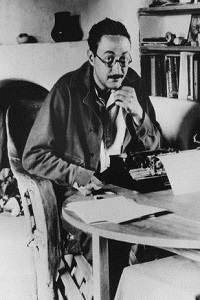The Audio Library of
Classic Southern Literature
1676 to 1923
Made possible by 
Visit our Children's literature site 
The Passing of Grandison
Written Text
Passing of Grandison-9- "Thanky, marster, thanky, suh," replied Grandison, oozing gratitude at every pore; "you is a good marster, to be sho', suh; yas, 'deed you is. You kin jes' bet me and Mars Dick gwine git 'long jes' lack I wuz own boy ter Mars Dick. En it won't be my fault ef he don' want me fer his boy all de time, w'en we come back home ag'in.""All right, Grandison, you may go now. You need n't work any more to-day, and here 's a piece of tobacco for you off my own plug." "Thanky, marster, thanky, marster! You is de bes' marster any nigger ever had in dis worl'." And Grandison bowed and scraped and disappeared round the corner, his jaws closing around a large section of the colonel's best tobacco. "You may take Grandison," said the colonel to his son. "I allow he 's abolitionist-proof." IIIRichard Owens, Esq., and servant, from Kentucky, registered at the fashionable New York hostelry for Southerners in those days, a hotel where an atmosphere congenial to Southern institutions was sedulously maintained. But there were negro waiters in the dining-room, and mulatto bell-boys, and Dick had no doubt that Grandison, with the native gregariousness and garrulousness of his race, would foregather and palaver with them sooner or later, and Dick hoped that they would speedily inoculate him with the virus of freedom. For it was not Dick's intention to say anything to his servant about his plan to free him, for obvious reasons. To mention one of them, if Grandison should go away, and by legal process be recaptured, his young master's part in the matter would doubtless become known, which would be embarrassing to Dick, to say the least. If, on the other hand, he should merely give Grandison sufficient latitude, he had no doubt he would eventually lose him. For while not exactly skeptical about Grandison's perfervid loyalty, Dick had been a somewhat keen observer of human nature, in his own indolent way, and based his expectations upon the force of the example and argument that his servant could scarcely fail to encounter. Grandison should have a fair chance to become free by his own initiative; if it should become necessary to adopt other measures to get rid of him, it would be time
Passing of Grandison-11- Dear Friend and Brother: A wicked slaveholder from Kentucky, stopping at the Revere House, has dared to insult the liberty-loving people of Boston by bringing his slave into their midst. Shall this be tolerated? Or shall steps be taken in the name of liberty to rescue a fellow-man from bondage? For obvious reasons I can only sign myself, A Friend of Humanity.That his letter might have an opportunity to prove effective, Dick made it a point to send Grandison away from the hotel on various errands. On one of these occasions Dick watched him for quite a distance down the street. Grandison had scarcely left the hotel when a long-haired, sharp-featured man came out behind him, followed him, soon overtook him, and kept along beside him until they turned the next corner. Dick's hopes were roused by this spectacle, but sank correspondingly when Grandison returned to the hotel. As Grandison said nothing about the encounter, Dick hoped there might be some self-consciousness behind this unexpected reticence, the results of which might develop later on. But Grandison was on hand again when his master came back to the hotel at night, and was in attendance again in the morning, with hot water, to assist at his master's toilet. Dick sent him on further errands from day to day, and upon one occasion came squarely up to him—inadvertently of course—while Grandison was engaged in conversation with a young white man in clerical garb. When Grandison saw Dick approaching, he edged away from the preacher and hastened toward his master, with a very evident expression of relief upon his countenance. "Mars Dick," he said, "dese yer abolitioners is jes' pesterin' de life out er me tryin' ter git me ter run away. I don' pay no 'tention ter 'em, but dey riles me so sometimes dat I 'm feared I 'll hit some of 'em some er dese days, an' dat mought git me inter trouble. I ain' said nuffin' ter you 'bout it, Mars Dick, fer I did n' wanter 'sturb yo' min'; but I don' like it, suh; no, suh, I don'! Is we gwine back home 'fo' long, Mars Dick?"
Passing of Grandison-12- "We 'll be going back soon enough," replied Dick somewhat shortly, while he inwardly cursed the stupidity of a slave who could be free and would not, and registered a secret vow that if he were unable to get rid of Grandison without assassinating him, and were therefore compelled to take him back to Kentucky, he would see that Grandison got a taste of an article of slavery that would make him regret his wasted opportunities. Meanwhile he determined to tempt his servant yet more strongly. "Grandison," he said next morning, "I 'm going away for a day or two, but I shall leave you here. I shall lock up a hundred dollars in this drawer and give you the key. If you need any of it, use it and enjoy yourself, —spend it all if you like, —for this is probably the last chance you 'll have for some time to be in a free State, and you 'd better enjoy your liberty while you may." When he came back a couple of days later and found the faithful Grandison at his post, and the hundred dollars intact, Dick felt seriously annoyed. His vexation was increased by the fact that he could not express his feelings adequately. He did not even scold Grandison; how could he, indeed, find fault with one who so sensibly recognized his true place in the economy of civilization, and kept it with such touching fidelity? "I can't say a thing to him," groaned Dick. "He deserves a leather medal, made out of his own hide tanned. I reckon I 'll write to father and let him know what a model servant he has given me." He wrote his father a letter which made the colonel swell with pride and pleasure. "I really think," the colonel observed to one of his friends, "that Dick ought to have the nigger interviewed by the Boston papers, so that they may see how contented and happy our darkeys really are." Dick also wrote a long letter to Charity Lomax, in which he said, among many other things, that if she knew how hard he was working, and under what difficulties, to accomplish something serious for her sake, she would no longer keep him in suspense, but overwhelm him with love and admiration.
Passing of Grandison-13- Having thus exhausted without result the more obvious methods of getting rid of Grandison, and diplomacy having also proved a failure, Dick was forced to consider more radical measures. Of course he might run away himself, and abandon Grandison, but this would be merely to leave him in the United States, where he was still a slave, and where, with his notions of loyalty, he would speedily be reclaimed. It was necessary, in order to accomplish the purpose of his trip to the North, to leave Grandison permanently in Canada, where he would be legally free. "I might extend my trip to Canada," he reflected, "but that would be too palpable. I have it! I 'll visit Niagara Falls on the way home, and lose him on the Canada side. When he once realizes that he is actually free, I 'll warrant that he 'll stay."So the next day saw them westward bound, and in due course of time, by the somewhat slow conveyances of the period, they found themselves at Niagara. Dick walked and drove about the Falls for several days, taking Grandison along with him on most occasions. One morning they stood on the Canadian side, watching the wild whirl of the waters below them. "Grandison," said Dick, raising his voice above the roar of the cataract, "do you know where you are now?" "I 's wid you, Mars Dick; dat 's all I keers.""You are now in Canada, Grandison, where your people go when they run away from their masters. If you wished, Grandison, you might walk away from me this very minute, and I could not lay my hand upon you to take you back." Grandison looked around uneasily."Let 's go back ober de ribber, Mars Dick. I 's feared I 'll lose you ovuh heah, an' den I won' hab no marster, an' won't nebber be able to git back home no mo'."Discouraged, but not yet hopeless, Dick said, a few minutes later:
Passing of Grandison-14- "Grandison, I 'm going up the road a bit, to the inn over yonder. You stay here until I return. I 'll not be gone a great while." Grandison's eyes opened wide and he looked somewhat fearful. "Is dey any er dem dadblasted abolitioners roun' heah, Mars Dick?""I don't imagine that there are," replied his master, hoping there might be. "But I 'm not afraid of your running away, Grandison. I only wish I were," he added to himself. Dick walked leisurely down the road to where the whitewashed inn, built of stone, with true British solidity, loomed up through the trees by the roadside. Arrived there he ordered a glass of ale and a sandwich, and took a seat at a table by a window, from which he could see Grandison in the distance. For a while he hoped that the seed he had sown might have fallen on fertile ground, and that Grandison, relieved from the restraining power of a master's eye, and finding himself in a free country, might get up and walk away; but the hope was vain, for Grandison remained faithfully at his post, awaiting his master's return. He had seated himself on a broad flat stone, and, turning his eyes away from the grand and awe-inspiring spectacle that lay close at hand, was looking anxiously toward the inn where his master sat cursing his ill-timed fidelity. By and by a girl came into the room to serve his order, and Dick very naturally glanced at her; and as she was young and pretty and remained in attendance, it was some minutes before he looked for Grandison. When he did so his faithful servant had disappeared. To pay his reckoning and go away without the change was a matter quickly accomplished. Retracing his footsteps toward the Falls, he saw, to his great disgust, as he approached the spot where he had left Grandison, the familiar form of his servant stretched out on the ground, his face to the sun, his mouth open, sleeping the time away, oblivious alike to the grandeur of the scenery, the thunderous roar of the cataract, or the insidious voice of sentiment. "Grandison," soliloquized his master, as he stood gazing down at his ebony encumbrance, "I do not deserve to be an American citizen; I ought not to have the advantages I possess
Passing of Grandison-15- over you; and I certainly am not worthy of Charity Lomax, if I am not smart enough to get rid of you. I have an idea! You shall yet be free, and I will be the instrument of your deliverance. Sleep on, faithful and affectionate servitor, and dream of the blue grass and the bright skies of old Kentucky, for it is only in your dreams that you will ever see them again!" Dick retraced his footsteps towards the inn. The young woman chanced to look out of the window and saw the handsome young gentleman she had waited on a few minutes before, standing in the road a short distance away, apparently engaged in earnest conversation with a colored man employed as hostler for the inn. She thought she saw something pass from the white man to the other, but at that moment her duties called her away from the window, and when she looked out again the young gentleman had disappeared, and the hostler, with two other young men of the neighborhood, one white and one colored, were walking rapidly towards the Falls. IVDick made the journey homeward alone, and as rapidly as the conveyances of the day would permit. As he drew near home his conduct in going back without Grandison took on a more serious aspect than it had borne at any previous time, and although he had prepared the colonel by a letter sent several days ahead, there was still the prospect of a bad quarter of an hour with him; not, indeed, that his father would upbraid him, but he was likely to make searching inquiries. And notwithstanding the vein of quiet recklessness that had carried Dick through his preposterous scheme, he was a very poor liar, having rarely had occasion or inclination to tell anything but the truth. Any reluctance to meet his father was more than offset, however, by a stronger force drawing him homeward, for Charity Lomax must long since have returned from her visit to her aunt in Tennessee. Dick got off easier than he had expected. He told a straight story, and a truthful one, so far as it went. The colonel raged at first, but rage soon subsided into anger, and anger moderated into annoyance, and annoyance into a sort of garrulous sense of injury. The colonel thought he had been hardly used; he had trusted this negro, and he had broken faith. Yet, after all, he
Passing of Grandison-16- did not blame Grandison so much as he did the abolitionists, who were undoubtedly at the bottom of it. As for Charity Lomax, Dick told her, privately of course, that he had run his father's man, Grandison, off to Canada, and left him there."Oh, Dick," she had said with shuddering alarm, "what have you done? If they knew it they 'd send you to the penitentiary, like they did that Yankee." "But they don't know it," he had replied seriously; adding, with an injured tone, "you don't seem to appreciate my heroism like you did that of the Yankee; perhaps it 's because I was n't caught and sent to the penitentiary. I thought you wanted me to do it." "Why, Dick Owens!" she exclaimed. "You know I never dreamed of any such outrageous proceeding. "But I presume I 'll have to marry you," she concluded, after some insistence on Dick's part, "if only to take care of you. You are too reckless for anything; and a man who goes chasing all over the North, being entertained by New York and Boston society and having negroes to throw away, needs some one to look after him." "It 's a most remarkable thing," replied Dick fervently, "that your views correspond exactly with my profoundest convictions. It proves beyond question that we were made for one another." * * * * * They were married three weeks later. As each of them had just returned from a journey, they spent their honeymoon at home. A week after the wedding they were seated, one afternoon, on the piazza of the colonel's house, where Dick had taken his bride, when a negro from the yard ran down the lane and threw open the big gate for the colonel's buggy to enter. The colonel was not alone. Beside
Passing of Grandison-17- him, ragged and travel-stained, bowed with weariness, and upon his face a haggard look that told of hardship and privation, sat the lost Grandison. The colonel alighted at the steps. "Take the lines, Tom," he said to the man who had opened the gate, "and drive round to the barn. Help Grandison down, —poor devil, he 's so stiff he can hardly move! —and get a tub of water and wash him and rub him down, and feed him, and give him a big drink of whiskey, and then let him come round and see his young master and his new mistress." The colonel's face wore an expression compounded of joy and indignation, —joy at the restoration of a valuable piece of property; indignation for reasons he proceeded to state. "It 's astounding, the depths of depravity the human heart is capable of! I was coming along the road three miles away, when I heard some one call me from the roadside. I pulled up the mare, and who should come out of the woods but Grandison. The poor nigger could hardly crawl along, with the help of a broken limb. I was never more astonished in my life. You could have knocked me down with a feather. He seemed pretty far gone, —he could hardly talk above a whisper, —and I had to give him a mouthful of whiskey to brace him up so he could tell his story. It 's just as I thought from the beginning, Dick; Grandison had no notion of running away; he knew when he was well off, and where his friends were. All the persuasions of abolition liars and runaway niggers did not move him. But the desperation of those fanatics knew no bounds; their guilty consciences gave them no rest. They got the notion somehow that Grandison belonged to a nigger-catcher, and had been brought North as a spy to help capture ungrateful runaway servants. They actually kidnaped him—just think of it!—and gagged him and bound him and threw him rudely into a wagon, and carried him into the gloomy depths of a Canadian forest, and locked him in a lonely hut, and fed him on bread and water for three weeks. One of the scoundrels wanted to kill him, and persuaded the others that it ought to be done; but they got to quarreling about how they should do it, and before they had their minds made up Grandison escaped, and, keeping his back steadily to the North Star, made his way, after suffering incredible hardships, back to the old plantation, back to his master, his friends, and his home. Why, it 's as good as one of Scott's novels! Mr. Simms or some other one of our Southern authors ought to write it up."
Passing of Grandison-18- "Don't you think, sir," suggested Dick, who had calmly smoked his cigar throughout the colonel's animated recital, "that that kidnaping yarn sounds a little improbable? Is n't there some more likely explanation?" "Nonsense, Dick; it 's the gospel truth! Those infernal abolitionists are capable of anything—everything! Just think of their locking the poor, faithful nigger up, beating him, kicking him, depriving him of his liberty, keeping him on bread and water for three long, lonesome weeks, and he all the time pining for the old plantation!" There were almost tears in the colonel's eyes at the picture of Grandison's sufferings that he conjured up. Dick still professed to be slightly skeptical, and met Charity's severely questioning eye with bland unconsciousness. The colonel killed the fatted calf for Grandison, and for two or three weeks the returned wanderer's life was a slave's dream of pleasure. His fame spread throughout the county, and the colonel gave him a permanent place among the house servants, where he could always have him conveniently at hand to relate his adventures to admiring visitors. * * * * * About three weeks after Grandison's return the colonel's faith in sable humanity was rudely shaken, and its foundations almost broken up. He came near losing his belief in the fidelity of the negro to his master, —the servile virtue most highly prized and most sedulously cultivated by the colonel and his kind. One Monday morning Grandison was missing. And not only Grandison, but his wife, Betty the maid; his mother, aunt Eunice; his father, uncle Ike; his brothers, Tom and John, and his little sister Elsie, were likewise absent from the plantation; and a hurried search and inquiry in the neighborhood resulted in no information as to their whereabouts. So much valuable property could not be lost without an effort to recover it, and the wholesale nature of the transaction carried consternation to the hearts of those whose ledgers were chiefly bound in black. Extremely energetic measures were taken by the colonel and his friends. The fugitives were traced, and followed from point to point, on their northward run through Ohio. Several times the hunters were close upon their
Passing of Grandison-19- heels, but the magnitude of the escaping party begot unusual vigilance on the part of those who sympathized with the fugitives, and strangely enough, the underground railroad seemed to have had its tracks cleared and signals set for this particular train. Once, twice, the colonel thought he had them, but they slipped through his fingers. One last glimpse he caught of his vanishing property, as he stood, accompanied by a United States marshal, on a wharf at a port on the south shore of Lake Erie. On the stern of a small steamboat which was receding rapidly from the wharf, with her nose pointing toward Canada, there stood a group of familiar dark faces, and the look they cast backward was not one of longing for the fleshpots of Egypt. The colonel saw Grandison point him out to one of the crew of the vessel, who waved his hand derisively toward the colonel. The latter shook his fist impotently—and the incident was closed
.................
Passing of Grandison-11- Dear Friend and Brother: A wicked slaveholder from Kentucky, stopping at the Revere House, has dared to insult the liberty-loving people of Boston by bringing his slave into their midst. Shall this be tolerated? Or shall steps be taken in the name of liberty to rescue a fellow-man from bondage? For obvious reasons I can only sign myself, A Friend of Humanity.That his letter might have an opportunity to prove effective, Dick made it a point to send Grandison away from the hotel on various errands. On one of these occasions Dick watched him for quite a distance down the street. Grandison had scarcely left the hotel when a long-haired, sharp-featured man came out behind him, followed him, soon overtook him, and kept along beside him until they turned the next corner. Dick's hopes were roused by this spectacle, but sank correspondingly when Grandison returned to the hotel. As Grandison said nothing about the encounter, Dick hoped there might be some self-consciousness behind this unexpected reticence, the results of which might develop later on. But Grandison was on hand again when his master came back to the hotel at night, and was in attendance again in the morning, with hot water, to assist at his master's toilet. Dick sent him on further errands from day to day, and upon one occasion came squarely up to him—inadvertently of course—while Grandison was engaged in conversation with a young white man in clerical garb. When Grandison saw Dick approaching, he edged away from the preacher and hastened toward his master, with a very evident expression of relief upon his countenance. "Mars Dick," he said, "dese yer abolitioners is jes' pesterin' de life out er me tryin' ter git me ter run away. I don' pay no 'tention ter 'em, but dey riles me so sometimes dat I 'm feared I 'll hit some of 'em some er dese days, an' dat mought git me inter trouble. I ain' said nuffin' ter you 'bout it, Mars Dick, fer I did n' wanter 'sturb yo' min'; but I don' like it, suh; no, suh, I don'! Is we gwine back home 'fo' long, Mars Dick?"
Passing of Grandison-12- "We 'll be going back soon enough," replied Dick somewhat shortly, while he inwardly cursed the stupidity of a slave who could be free and would not, and registered a secret vow that if he were unable to get rid of Grandison without assassinating him, and were therefore compelled to take him back to Kentucky, he would see that Grandison got a taste of an article of slavery that would make him regret his wasted opportunities. Meanwhile he determined to tempt his servant yet more strongly. "Grandison," he said next morning, "I 'm going away for a day or two, but I shall leave you here. I shall lock up a hundred dollars in this drawer and give you the key. If you need any of it, use it and enjoy yourself, —spend it all if you like, —for this is probably the last chance you 'll have for some time to be in a free State, and you 'd better enjoy your liberty while you may." When he came back a couple of days later and found the faithful Grandison at his post, and the hundred dollars intact, Dick felt seriously annoyed. His vexation was increased by the fact that he could not express his feelings adequately. He did not even scold Grandison; how could he, indeed, find fault with one who so sensibly recognized his true place in the economy of civilization, and kept it with such touching fidelity? "I can't say a thing to him," groaned Dick. "He deserves a leather medal, made out of his own hide tanned. I reckon I 'll write to father and let him know what a model servant he has given me." He wrote his father a letter which made the colonel swell with pride and pleasure. "I really think," the colonel observed to one of his friends, "that Dick ought to have the nigger interviewed by the Boston papers, so that they may see how contented and happy our darkeys really are." Dick also wrote a long letter to Charity Lomax, in which he said, among many other things, that if she knew how hard he was working, and under what difficulties, to accomplish something serious for her sake, she would no longer keep him in suspense, but overwhelm him with love and admiration.
Passing of Grandison-13- Having thus exhausted without result the more obvious methods of getting rid of Grandison, and diplomacy having also proved a failure, Dick was forced to consider more radical measures. Of course he might run away himself, and abandon Grandison, but this would be merely to leave him in the United States, where he was still a slave, and where, with his notions of loyalty, he would speedily be reclaimed. It was necessary, in order to accomplish the purpose of his trip to the North, to leave Grandison permanently in Canada, where he would be legally free. "I might extend my trip to Canada," he reflected, "but that would be too palpable. I have it! I 'll visit Niagara Falls on the way home, and lose him on the Canada side. When he once realizes that he is actually free, I 'll warrant that he 'll stay."So the next day saw them westward bound, and in due course of time, by the somewhat slow conveyances of the period, they found themselves at Niagara. Dick walked and drove about the Falls for several days, taking Grandison along with him on most occasions. One morning they stood on the Canadian side, watching the wild whirl of the waters below them. "Grandison," said Dick, raising his voice above the roar of the cataract, "do you know where you are now?" "I 's wid you, Mars Dick; dat 's all I keers.""You are now in Canada, Grandison, where your people go when they run away from their masters. If you wished, Grandison, you might walk away from me this very minute, and I could not lay my hand upon you to take you back." Grandison looked around uneasily."Let 's go back ober de ribber, Mars Dick. I 's feared I 'll lose you ovuh heah, an' den I won' hab no marster, an' won't nebber be able to git back home no mo'."Discouraged, but not yet hopeless, Dick said, a few minutes later:
Passing of Grandison-14- "Grandison, I 'm going up the road a bit, to the inn over yonder. You stay here until I return. I 'll not be gone a great while." Grandison's eyes opened wide and he looked somewhat fearful. "Is dey any er dem dadblasted abolitioners roun' heah, Mars Dick?""I don't imagine that there are," replied his master, hoping there might be. "But I 'm not afraid of your running away, Grandison. I only wish I were," he added to himself. Dick walked leisurely down the road to where the whitewashed inn, built of stone, with true British solidity, loomed up through the trees by the roadside. Arrived there he ordered a glass of ale and a sandwich, and took a seat at a table by a window, from which he could see Grandison in the distance. For a while he hoped that the seed he had sown might have fallen on fertile ground, and that Grandison, relieved from the restraining power of a master's eye, and finding himself in a free country, might get up and walk away; but the hope was vain, for Grandison remained faithfully at his post, awaiting his master's return. He had seated himself on a broad flat stone, and, turning his eyes away from the grand and awe-inspiring spectacle that lay close at hand, was looking anxiously toward the inn where his master sat cursing his ill-timed fidelity. By and by a girl came into the room to serve his order, and Dick very naturally glanced at her; and as she was young and pretty and remained in attendance, it was some minutes before he looked for Grandison. When he did so his faithful servant had disappeared. To pay his reckoning and go away without the change was a matter quickly accomplished. Retracing his footsteps toward the Falls, he saw, to his great disgust, as he approached the spot where he had left Grandison, the familiar form of his servant stretched out on the ground, his face to the sun, his mouth open, sleeping the time away, oblivious alike to the grandeur of the scenery, the thunderous roar of the cataract, or the insidious voice of sentiment. "Grandison," soliloquized his master, as he stood gazing down at his ebony encumbrance, "I do not deserve to be an American citizen; I ought not to have the advantages I possess
Passing of Grandison-15- over you; and I certainly am not worthy of Charity Lomax, if I am not smart enough to get rid of you. I have an idea! You shall yet be free, and I will be the instrument of your deliverance. Sleep on, faithful and affectionate servitor, and dream of the blue grass and the bright skies of old Kentucky, for it is only in your dreams that you will ever see them again!" Dick retraced his footsteps towards the inn. The young woman chanced to look out of the window and saw the handsome young gentleman she had waited on a few minutes before, standing in the road a short distance away, apparently engaged in earnest conversation with a colored man employed as hostler for the inn. She thought she saw something pass from the white man to the other, but at that moment her duties called her away from the window, and when she looked out again the young gentleman had disappeared, and the hostler, with two other young men of the neighborhood, one white and one colored, were walking rapidly towards the Falls. IVDick made the journey homeward alone, and as rapidly as the conveyances of the day would permit. As he drew near home his conduct in going back without Grandison took on a more serious aspect than it had borne at any previous time, and although he had prepared the colonel by a letter sent several days ahead, there was still the prospect of a bad quarter of an hour with him; not, indeed, that his father would upbraid him, but he was likely to make searching inquiries. And notwithstanding the vein of quiet recklessness that had carried Dick through his preposterous scheme, he was a very poor liar, having rarely had occasion or inclination to tell anything but the truth. Any reluctance to meet his father was more than offset, however, by a stronger force drawing him homeward, for Charity Lomax must long since have returned from her visit to her aunt in Tennessee. Dick got off easier than he had expected. He told a straight story, and a truthful one, so far as it went. The colonel raged at first, but rage soon subsided into anger, and anger moderated into annoyance, and annoyance into a sort of garrulous sense of injury. The colonel thought he had been hardly used; he had trusted this negro, and he had broken faith. Yet, after all, he
Passing of Grandison-16- did not blame Grandison so much as he did the abolitionists, who were undoubtedly at the bottom of it. As for Charity Lomax, Dick told her, privately of course, that he had run his father's man, Grandison, off to Canada, and left him there."Oh, Dick," she had said with shuddering alarm, "what have you done? If they knew it they 'd send you to the penitentiary, like they did that Yankee." "But they don't know it," he had replied seriously; adding, with an injured tone, "you don't seem to appreciate my heroism like you did that of the Yankee; perhaps it 's because I was n't caught and sent to the penitentiary. I thought you wanted me to do it." "Why, Dick Owens!" she exclaimed. "You know I never dreamed of any such outrageous proceeding. "But I presume I 'll have to marry you," she concluded, after some insistence on Dick's part, "if only to take care of you. You are too reckless for anything; and a man who goes chasing all over the North, being entertained by New York and Boston society and having negroes to throw away, needs some one to look after him." "It 's a most remarkable thing," replied Dick fervently, "that your views correspond exactly with my profoundest convictions. It proves beyond question that we were made for one another." * * * * * They were married three weeks later. As each of them had just returned from a journey, they spent their honeymoon at home. A week after the wedding they were seated, one afternoon, on the piazza of the colonel's house, where Dick had taken his bride, when a negro from the yard ran down the lane and threw open the big gate for the colonel's buggy to enter. The colonel was not alone. Beside
Passing of Grandison-17- him, ragged and travel-stained, bowed with weariness, and upon his face a haggard look that told of hardship and privation, sat the lost Grandison. The colonel alighted at the steps. "Take the lines, Tom," he said to the man who had opened the gate, "and drive round to the barn. Help Grandison down, —poor devil, he 's so stiff he can hardly move! —and get a tub of water and wash him and rub him down, and feed him, and give him a big drink of whiskey, and then let him come round and see his young master and his new mistress." The colonel's face wore an expression compounded of joy and indignation, —joy at the restoration of a valuable piece of property; indignation for reasons he proceeded to state. "It 's astounding, the depths of depravity the human heart is capable of! I was coming along the road three miles away, when I heard some one call me from the roadside. I pulled up the mare, and who should come out of the woods but Grandison. The poor nigger could hardly crawl along, with the help of a broken limb. I was never more astonished in my life. You could have knocked me down with a feather. He seemed pretty far gone, —he could hardly talk above a whisper, —and I had to give him a mouthful of whiskey to brace him up so he could tell his story. It 's just as I thought from the beginning, Dick; Grandison had no notion of running away; he knew when he was well off, and where his friends were. All the persuasions of abolition liars and runaway niggers did not move him. But the desperation of those fanatics knew no bounds; their guilty consciences gave them no rest. They got the notion somehow that Grandison belonged to a nigger-catcher, and had been brought North as a spy to help capture ungrateful runaway servants. They actually kidnaped him—just think of it!—and gagged him and bound him and threw him rudely into a wagon, and carried him into the gloomy depths of a Canadian forest, and locked him in a lonely hut, and fed him on bread and water for three weeks. One of the scoundrels wanted to kill him, and persuaded the others that it ought to be done; but they got to quarreling about how they should do it, and before they had their minds made up Grandison escaped, and, keeping his back steadily to the North Star, made his way, after suffering incredible hardships, back to the old plantation, back to his master, his friends, and his home. Why, it 's as good as one of Scott's novels! Mr. Simms or some other one of our Southern authors ought to write it up."
Passing of Grandison-18- "Don't you think, sir," suggested Dick, who had calmly smoked his cigar throughout the colonel's animated recital, "that that kidnaping yarn sounds a little improbable? Is n't there some more likely explanation?" "Nonsense, Dick; it 's the gospel truth! Those infernal abolitionists are capable of anything—everything! Just think of their locking the poor, faithful nigger up, beating him, kicking him, depriving him of his liberty, keeping him on bread and water for three long, lonesome weeks, and he all the time pining for the old plantation!" There were almost tears in the colonel's eyes at the picture of Grandison's sufferings that he conjured up. Dick still professed to be slightly skeptical, and met Charity's severely questioning eye with bland unconsciousness. The colonel killed the fatted calf for Grandison, and for two or three weeks the returned wanderer's life was a slave's dream of pleasure. His fame spread throughout the county, and the colonel gave him a permanent place among the house servants, where he could always have him conveniently at hand to relate his adventures to admiring visitors. * * * * * About three weeks after Grandison's return the colonel's faith in sable humanity was rudely shaken, and its foundations almost broken up. He came near losing his belief in the fidelity of the negro to his master, —the servile virtue most highly prized and most sedulously cultivated by the colonel and his kind. One Monday morning Grandison was missing. And not only Grandison, but his wife, Betty the maid; his mother, aunt Eunice; his father, uncle Ike; his brothers, Tom and John, and his little sister Elsie, were likewise absent from the plantation; and a hurried search and inquiry in the neighborhood resulted in no information as to their whereabouts. So much valuable property could not be lost without an effort to recover it, and the wholesale nature of the transaction carried consternation to the hearts of those whose ledgers were chiefly bound in black. Extremely energetic measures were taken by the colonel and his friends. The fugitives were traced, and followed from point to point, on their northward run through Ohio. Several times the hunters were close upon their
Passing of Grandison-19- heels, but the magnitude of the escaping party begot unusual vigilance on the part of those who sympathized with the fugitives, and strangely enough, the underground railroad seemed to have had its tracks cleared and signals set for this particular train. Once, twice, the colonel thought he had them, but they slipped through his fingers. One last glimpse he caught of his vanishing property, as he stood, accompanied by a United States marshal, on a wharf at a port on the south shore of Lake Erie. On the stern of a small steamboat which was receding rapidly from the wharf, with her nose pointing toward Canada, there stood a group of familiar dark faces, and the look they cast backward was not one of longing for the fleshpots of Egypt. The colonel saw Grandison point him out to one of the crew of the vessel, who waved his hand derisively toward the colonel. The latter shook his fist impotently—and the incident was closed
.................
“The Passing of Grandison,” by Charles Waddell Chesnutt
Read by Roderick Davis
Audio Engineer Chris Pope
Directed by Walter Evans
Copyright Georgia Regents University 2012 All Rights Reserved

